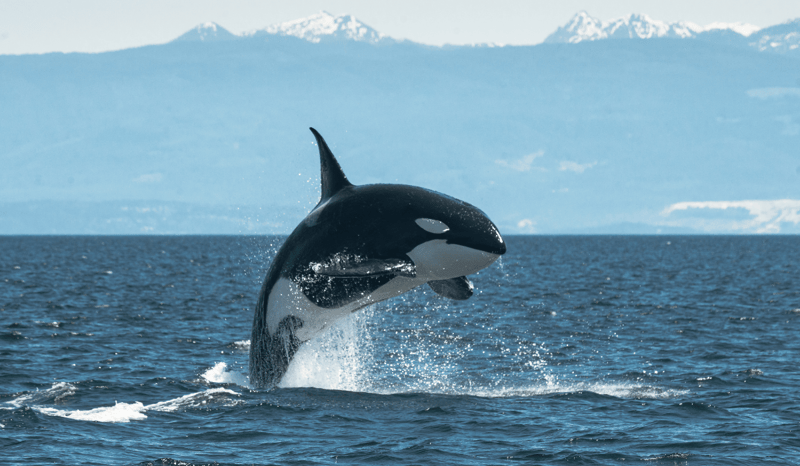
Wild orcas are surprising scientists by “gifting” dead animals to humans, but why is it so important to keep these ocean giants wild?
Orcas, or killer whales, have long fascinated us with their intelligence, complex social lives, and powerful presence in the ocean. A recent study published in the Journal of Comparative Psychology reveals astonishing behavior: wild orcas have been observed “gifting” dead animals—fish, birds, stingrays, and more—to humans, a behavior representative of interspecific generalized altruism.
These interactions, documented over two decades across California, New Zealand, Norway, and Patagonia, show orcas approaching people unprompted, leaving their “gifts,” and often lingering nearby, as if inviting connection. In every instance, “the whales awaited a human response before subsequently reacting.”
This remarkable behavior reminds us of how cats bring their owners prey—a prosocial gesture that can deepen bonds. Researchers suggest orcas might be exploring relationships with humans or practicing culturally learned behaviors. Importantly, none of these interactions involved aggression, highlighting the orcas’ curiosity rather than threat.
But it’s important to remember: orcas are wild animals, apex predators of the ocean, and they deserve to live free and undisturbed in their natural habitats. These “gifts” reveal incredible intelligence and social complexity, and our understanding of orcas is far richer and more accurate when based on observations of wild populations, not those confined in captivity. Research shows that captivity not only restricts their natural behaviors but also prevents orcas from living full, healthy lives and is fundamentally harmful to their well-being.
A key word there is observation. Interacting with orcas in the wild can disrupt their behaviors and cause stress. Keeping wild animals wild means allowing them to thrive free from human intervention in the ecosystems they’ve evolved to navigate—ecosystems that, sadly, humans have dramatically altered and continue to impact.
Studies like this one remind us how deeply connected we are to the natural world and how much we still have to learn from these sentient beings. They’re powerful reminders of the deep connections possible between humans and non-human animals, but those connections must be rooted in respect and protection.
At World Animal Protection, we are committed to ending orca captivity worldwide, supporting marine conservation, and advocating for policies that protect these magnificent animals and their ocean homes.
You can help by supporting World Animal Protection’s work to protect animals like orcas worldwide. Make a donation today!